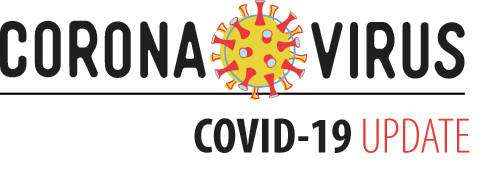
These are some of the latest developments Wednesday in the world’s coronavirus pandemic:
— NUMBER OF WORLDWIDE CASES TOPS 200,000
The number of people infected worldwide surpassed the 200,000 mark. Deaths topped 8,000, but the number of people considered recovered reached over 82,000, according to a tally kept by Johns Hopkins University. The countries with the most confirmed cases were China, Italy, Iran, Spain and Germany. The countries with the most confirmed deaths were China, Italy, Iran, Spain and France.
— TRUMP INVOKES EMERGENCY AUTHORITY
President Donald Trump moved to invoke a federal law that allows the U.S. government to marshal the private sector to fight the coronavirus epidemic. The economic damage from the global pandemic mounted with word that Detroit’s Big Three automakers agreed to shut down all their factories to protect workers.
— GOVERNMENTS GRAPPLE WITH BORDER CLOSURES
Governments grappled with how to implement border closures and lockdowns that caused transportation chaos and imperiled economies but which authorities said are needed to slow the spread of the virus. European Union leaders agreed to shut down the bloc’s external borders and ban entry of most foreigners for 30 days. The United States and Canada were working on a mutual ban on nonessential travel between the two countries.
— CANCER, HEART SURGERIES DELAYED
Doctors in virtually every field are scrambling to alter care as the new coronavirus spreads. Some cancer surgeries are being delayed, many stent procedures for clogged arteries have been pushed back and infertility specialists are postponing efforts to help patients get pregnant. Medical groups issued advice this week on how hospitals and doctors should adapt as beds and supplies are pinched and worries rise about exposing patients to possible infection.
— US STRUGGLES TO PROVIDE PROTECTIVE GEAR
The U.S. government is rushing protective equipment to states, packing dozens of flights and hundreds of trucks with supplies like masks and gloves for medical workers on the front lines of the coronavirus fight. But the pandemic has exposed some of the Strategic National Stockpile’s shortcomings: The cache isn’t designed to be a long-term solution, but state officials are complaining that the deliveries are falling far short of what’s needed or include expired items. The stockpile created in 1999 maintains caches of pharmaceuticals, medical supplies and vaccines in secret locations around the nation.
— WAR-RAVAGED MIDDLE EAST COUNTRIES FACE NEW SCOURGE
Long-running wars and conflicts across the Middle East have wrecked potential defenses against coronavirus outbreaks, leaving millions vulnerable in Yemen, Libya, Syria, Afghanistan, the Gaza Strip and elsewhere. Health care systems have been gutted; war has damaged key infrastructure. Several of the countries are carved up among opposing factions, rival claimant governments or armed groups, impeding any possible nationwide strategies to protect public health. Further complicating the response in countries with long-running conflicts, hundreds of thousands of people are crowded in close quarters in tent camps or improper housing.
— PRISON INMATES SEEK COMPASSIONATE RELEASE
America’s nearly 7,000 jails, prisons and correction facilities are an ideal breeding ground for the coronavirus, as dangerous as nursing homes and cruise ships but far less sanitary. That has prompted some inmates to plead for compassionate release or home detention. Among them are Trump’s former personal attorney, Michael Cohen, Ponzi schemer Bernard Madoff, the former head of the Cali drug cartel and dozens of inmates at New York City’s Rikers Island, part of a jail system that lost an employee to the virus this week.
— RESPECTING PERSONAL SPACE
The coronavirus has rapidly redefined the concept of respecting personal space for Italians, as well as for South Koreans, Filipinos, Americans, Spaniards and citizens of many other crowded parts of the world. In hard-hit Italy, a nationwide decree that took effect last week obliges people to stay at least 1 meter (about 40 inches) apart. Overnight, habits were turned upside down in a tactile society where walking arm-in-arm with friends and kiss neighbors in greeting. Whether acting under government orders or following basic public health advice, people are putting distance between themselves to keep the coronavirus away.
___
The Associated Press receives support for health and science coverage from the Howard Hughes Medical Institute’s Department of Science Education. The AP is solely responsible for all content.
___
Follow AP coverage of the virus outbreak at https://apnews.com/VirusOutbreak and https://apnews.com/UnderstandingtheOutbreak


